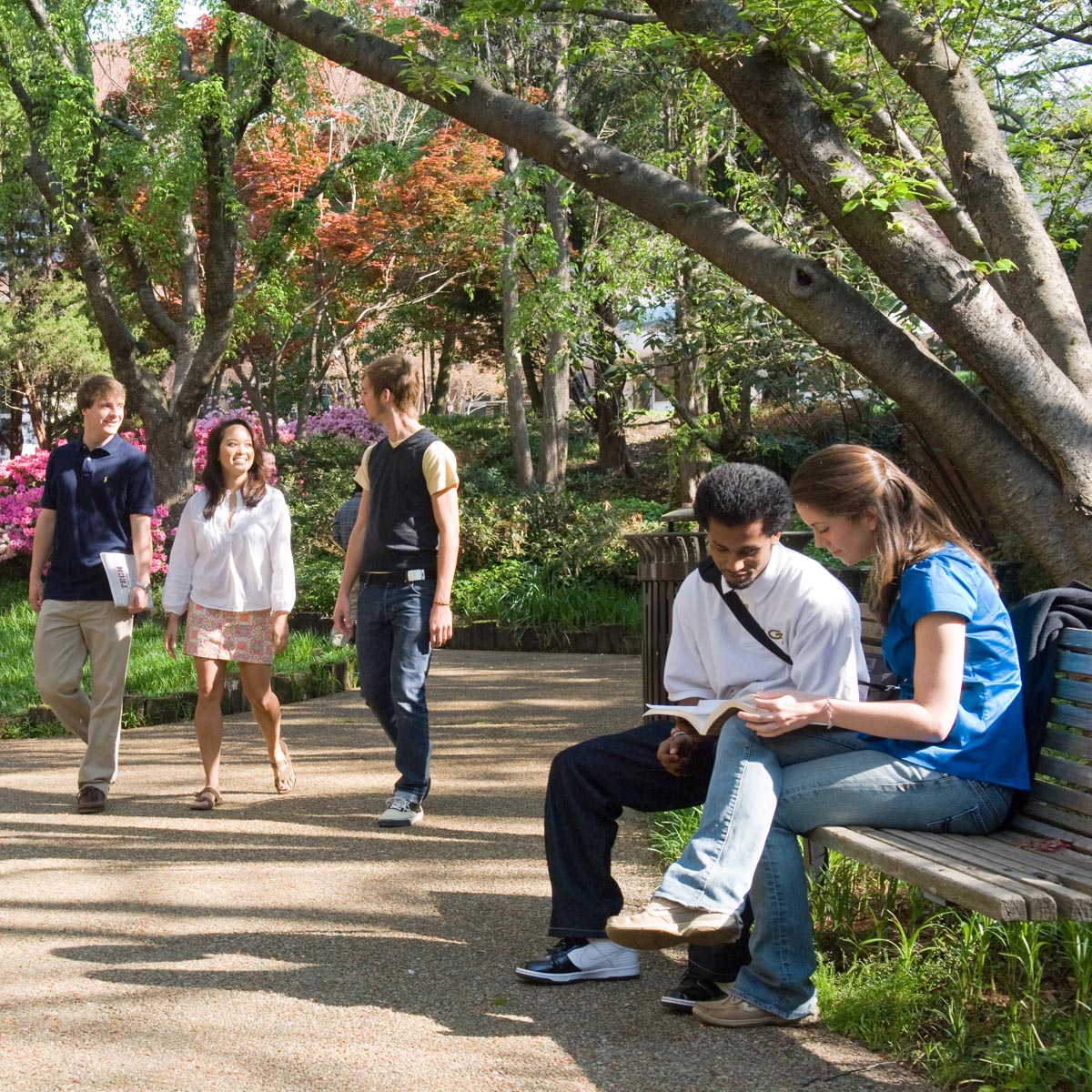Georgia Tech is committed to advancing the U.N. Sustainability Development Goals (SDGs) through The Sustainability Next Plan. The plan aims to provide “a path toward establishing Georgia Tech as a leader in equitable, economic, and environmental sustainability” and fulfills three of the Institute’s six strategic goals, including Amplify Impact, Connect Globally, and Lead by Example. One of the ways the plan will be successful is through faculty participation in revamping existing - or developing new- courses to incorporate the SDGs.
To further these goals, two Scheller College of Business faculty, Tiffany Johnson, assistant professor in Organizational Behavior, and Robbie Moon, the Thomas Williams-Wells Fargo Professor in Management and associate professor in Accounting, have received Sustainability Education Innovation Awards, which provide funding to faculty members who plan to integrate SDGs concepts and skills into their curriculum.
Dr. Tiffany Johnson plans to use the funds to expand upon her course, “Work, Equity, and Wellness,” a class designed for students interested in doing diversity, equity, and inclusion work in their colleges, student-led organizations, and current or future workplaces.
In her third year of teaching the course, her curriculum has expanded to include studying the coffee industry as it relates to doing the work of equity in a sustainable way, which reflects what the Sustainability Next initiative calls the 3 E’s of sustainability (equity, economy, and environment).
“This grant means a lot to me in terms of connections with coffee professionals and the opportunity for students in my re-designed course to engage in experiential learning about the SDGs broadly - and doing sustainable equity-related work specifically because of them.
She continued, “As one example, the grant afforded me the opportunity to travel to the Specialty Coffee Association’s Expo in Portland, Oregon, where I was able to meet coffee professionals throughout the value chain and co-facilitate a workshop alongside Coffee Coalition for Racial Equity’s founding director, Phyllis Johnson. These meetings and workshops yielded connections with organizations that agreed to be the focal point of the cases I write and semester-long class projects in the re-designed course.”
Johnson’s experiential component allows students to work directly with coffee professionals in a class project by studying equity throughout the supply chain. It will also include developing cases with companies and organizations in the coffee industry.
Dr. Robbie Moon plans to create a new course, “Accounting and Reporting for Sustainable Business.” In his proposal, Moon acknowledges that many may not consider accounting in fulfilling the SDGs. Still, he states, “many have argued that proper accounting is, in fact, a necessary first step because it allows for accountability. Business stakeholders and managers respond to incentives, which are generally tied to objective, reliably measured metrics, many of which relate closely to those targets outlined in the SDGs.”
His course will focus on three main areas: the role of accounting in promoting and facilitating accountability, the importance of metrics and benchmarks in accounting for sustainability, and current practices in sustainability reporting around the world.
“Our students already recognize the importance of a business’s commitment to sustainable practices, and I think the course I plan to develop will help them understand what to expect in the reporting and evaluation process. I also think the class will provide a venue for vibrant debate about these important issues, where students can feel comfortable expressing their own thoughts and opinions and learning how others think,” said Moon.
He will offer students a varied curriculum, including discussions from reading popular books related to sustainability, learning how to read and evaluate academic research on sustainability reporting, and producing a capstone paper that includes identifying a company that the student feels could make a big difference in fulfilling one of the SDGs. His course will also offer an experiential learning component through hosting guest speakers, which may include current or former CFOs, policymakers, and sustainable fund managers.
In choosing recipients, the Sustainability Implementation Team placed a higher value on proposals that offered high-impact courses, including those that will attract increased student enrollment, include an experiential learning component, be included as a core course, and provide multiple sections of the same course.

